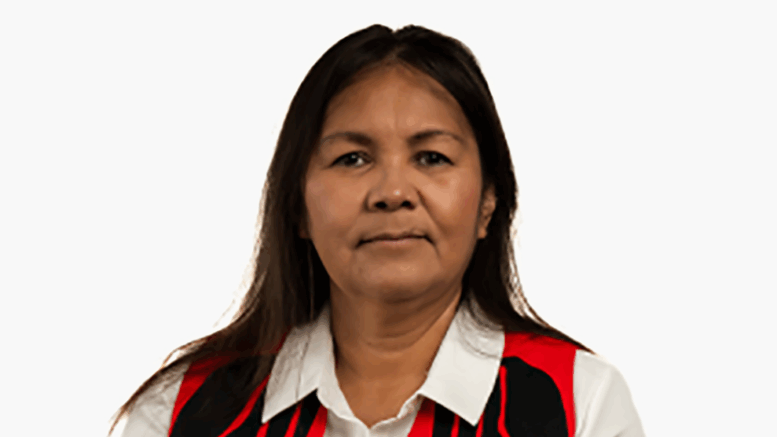By John Wirth, Local Journalism Initiative Reporter
In Canada, provincial governments hold jurisdiction over many aspects of mining. These include the development and enforcement of mining regulations, the issuance of permits and licenses for mineral exploration and extraction, and the negotiation of agreements with mining companies. These agreements encompass critical areas such as environmental protection, royalty payments, and community benefit arrangements.
With high tariffs on Canadian exports looming, gold prices have reached record highs this year, likely due to market uncertainty.
Meanwhile, a powerful coalition has formed to challenge the Mineral Tenure Agreement policy change. In its challenge, the Gitxaała Nation is standing with the full support of The Union of British Columbian Indian Chiefs (UBCIC).
Furthermore, The First Nations Leadership Council (FNLC) and British Columbia Civil Liberties Association (BCCLA) all stand against changes in policy that would attack their sovereign Indigenous territories.
The esteemed Chief Linda Innes of the Gitxaała Nation offered comment,
“Last month the BC Court of Appeal heard Gitxaała Nation’s partial appeal of the BC Supreme Court’s 2023 ruling that BC’s UNDRIP legislation (DRIPA) was not legally enforceable in the courts. Our goal is for the BC Court of Appeal to clarify that DRIPA does in fact create legal obligations for BC, and where BC and First Nations disagree about whether laws are consistent with UNDRIP, the courts have a role to play in holding the BC Government to account for their own legislative commitments.”
The Gitxaała Nation is appealing the Mineral Tenure Act (MTA) which does not uphold the United Nations Declaration on the Rights of Indigenous Peoples (UNDRIP). In an effort to address this, the province responded by developing a framework known as BC’s Mineral Claims Consultation Framework (MCCF).
Gitxaała Nation Chief Innes asserts that, “The Province of BC’s draft Mineral Claims Consultation Framework is a disappointing reflection of the Province’s view of their duty to consult Indigenous title holders.”
While the province is satisfied in their framework, it falls bitterly short of what’s considered fair.
Chief Innes continues, “It is nothing more than a standard referral process, like so many others the Province has been running for decades, with no reference to the UN Declaration on the Rights of Indigenous Peoples standard of free, prior and informed consent.”
She points out that the MCCF is only a “standard referral process” acting as consultation. It does not have any meaningful strategies for ensuring free, prior and informed consent, enshrined in UNDRIP.
BCAFN Regional Chief Terry Teegee clarifies, “The Declaration Act requires the Province to work with First Nations to take all necessary measures to ensure the Mineral Tenure Act is amended to address that inconsistency.”
Adding a process in the MCCF framework that bypasses the “consultation phase” entirely when there is “no response,” doesn’t beat allegations of tokenism and reveals a fundamental disrespect for Indigenous decision-making processes.
This framework falls squarely within the established pattern of “consultation” as a procedural formality rather than a genuine attempt to build nation-to-nation relationships based on mutual respect.
The Gitxaała Nation’s legal challenge, currently before the BC Court of Appeal, aims to make clear what is the legal enforceability of DRIPA . This case has big implications for the future of Indigenous rights in British Columbia.
A favorable ruling could establish a precedent for holding the province accountable for its commitments to UNDRIP and free, and informed consent. On the other hand, an unfavorable ruling would further tip the power imbalance and dig a deeper hole for the ongoing violation of Indigenous sovereignty.
Indigenous Communities’ voices have not been respected in these discussions of mineral extraction in British Columbia because historically, the province and corporations have profited from regulation concerning Indigenous Title Holders.
it’s more than just the development of the land, its big picture is that the MTA and the new framework attempts to dispossess people from their lands and thereby severely impact their right to self-determination. One huckleberry bush requires many generations of good ancestors to even begin to provide for their community, but only one generation to knock it down. We can all think of a medicine just like that in our home territories. And that’s why First Nations and other groups are standing with the Gitxaała.
The Gitxaała Nation’s challenge to the MTA is a crucial step in this process, offering an opportunity to move beyond the legacy of resource colonialism and towards a future where Indigenous sovereignty is truly respected.
One can read further details on this issue as they happen on the website for the MFFC HERE.



Be the first to comment on "Coalition of First Nations contest the Mineral Tenure Agreement"